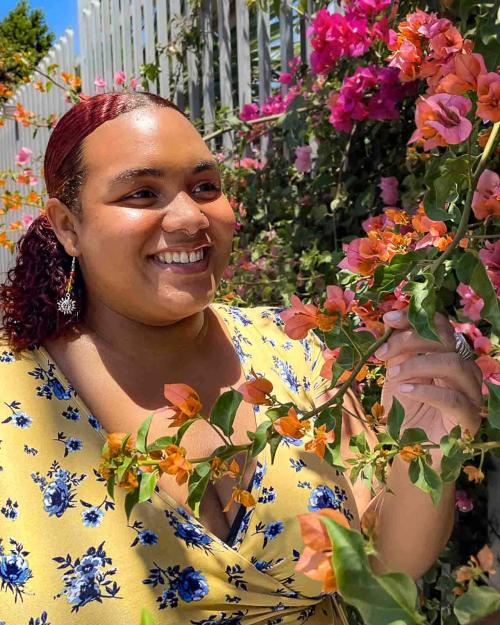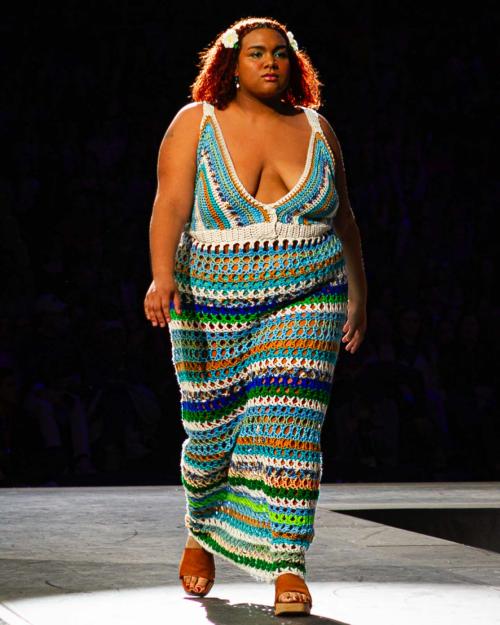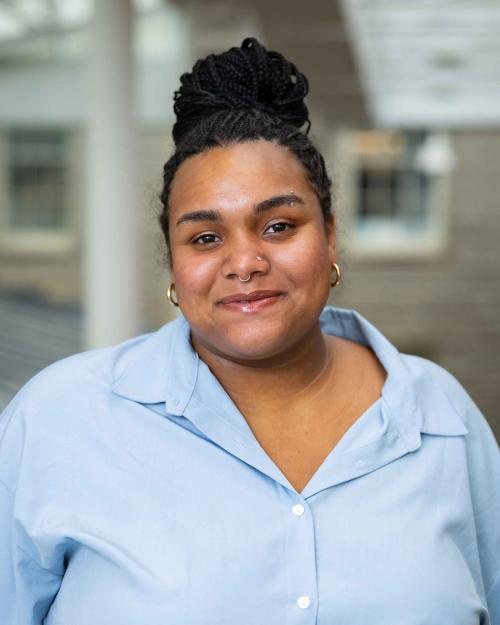Kaylani Williams
English
Buffalo, N.Y.
What are the most valuable skills you gained from your Arts & Sciences education?

Through my Arts & Sciences education, I have developed a strong ability to analyze, understand and build interdisciplinary connections in my work, allowing me to approach complex ideas from multiple perspectives. My experience engaging with scholars across various disciplines has refined my ability to collaborate effectively within scholarship. I am grateful for the intellectual exchange and being exposed of diverse viewpoints from my peers. Additionally, these experiences have honed essential research and analytical skills, enabling me to present intricate theoretical concepts with clarity and precision. Ultimately, the most valuable skill I have gained is the ability to critically reflect on my own work in relation to other scholars and disciplines, allowing me to refine my thinking and produce the strongest, most nuanced analysis possible. This process of continuous critique and interdisciplinary engagement has shaped my approach to scholarship, pushing me to craft work that is both intellectually rigorous and deeply informed.
What have you accomplished as a Cornell student that you are most proud of?

One of my most significant accomplishments as a Cornell student has been my role as a Mellon Mays Fellow. Through my research on Black female sexuality and self-determination, I have engaged deeply with critical scholarship, allowing my academic interests to be shaped by my personal identity and advocacy. This work has not only refined my analytical approach but also reinforced the importance of exploring narratives that challenge dominant frameworks and expand academic diversity. Beyond the research itself, my experience within the fellowship has been shaped by the intellectual and personal support of my cohort, with our collective experience having enriched both my academic development and personal growth. Presenting my work to national scholars has also offered me invaluable experience in articulating complex ideas concisely. This journey has not only strengthened my research and analytical skills but has also prepared me for a future in academia — both in teaching and engaging meaningfully with my peers as we collectively push the boundaries of validated scholarship.
How have your beliefs or perspectives changed since you first arrived at Cornell?
My experience at Cornell has truly helped me change my belief on the function and methods in approaching academia and its role within our larger society. Specifically with my engagement of English and Africana studies, I have been encouraged to change my perspective on the education I receive to not just exist within private/commercial sectors or for financial gain, but to continue through the way I behave and engage in advocacy and social justice. When I first entered academia, I saw it as rigid, largely established by frameworks that dictated importance of study based on lucrative ability. However, through my experiences, I have become more aware of the spaces that exist to challenge these notions — that academia can be fluid, shaped by the collective voices that push for inclusivity, critical thought and a deeper engagement with the world around us. Most importantly, scholarship does not need to be competitive to be meaningful. Working alongside my peers has proven to me that collaboration has the power to reshape how we approach responsibility — both in academia and in our broader communities - ensuring that education is not just about acquiring knowledge but about transforming the ways we apply it to advocate for change. This belief has made me discover that my place and work in academia, in my community and in my future is not without commitment to support an inclusive future.
Who or what influenced your Cornell education the most?
Any and all classes I took within the Africana studies department! While I felt and embraced the community of Black and brown people on campus, I originally felt that my topic and discourse of academic study would not be supported by literatures of English alone — however, my first class, Intro to Africana with Professor Michell Chresfield, helped cement my interest in elevating and diving into my own research. My experience within Africana studies, as an institution and amongst my many beloved professors over the years, has influenced the dedication I have put into my Cornell education.
Every year, our faculty nominate graduating Arts & Sciences students to be featured as part of our Extraordinary Journeys series.Read more about the Class of 2025.




